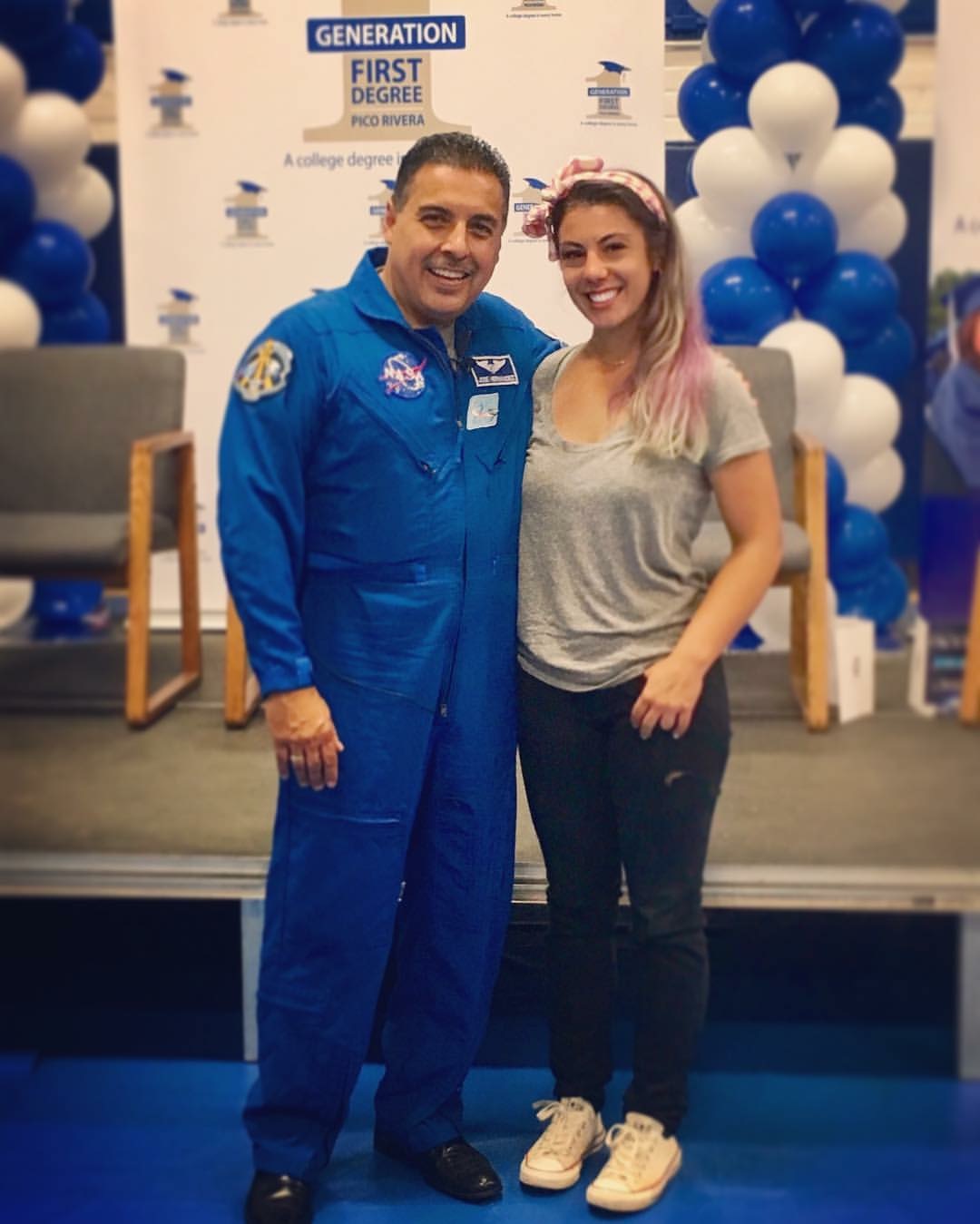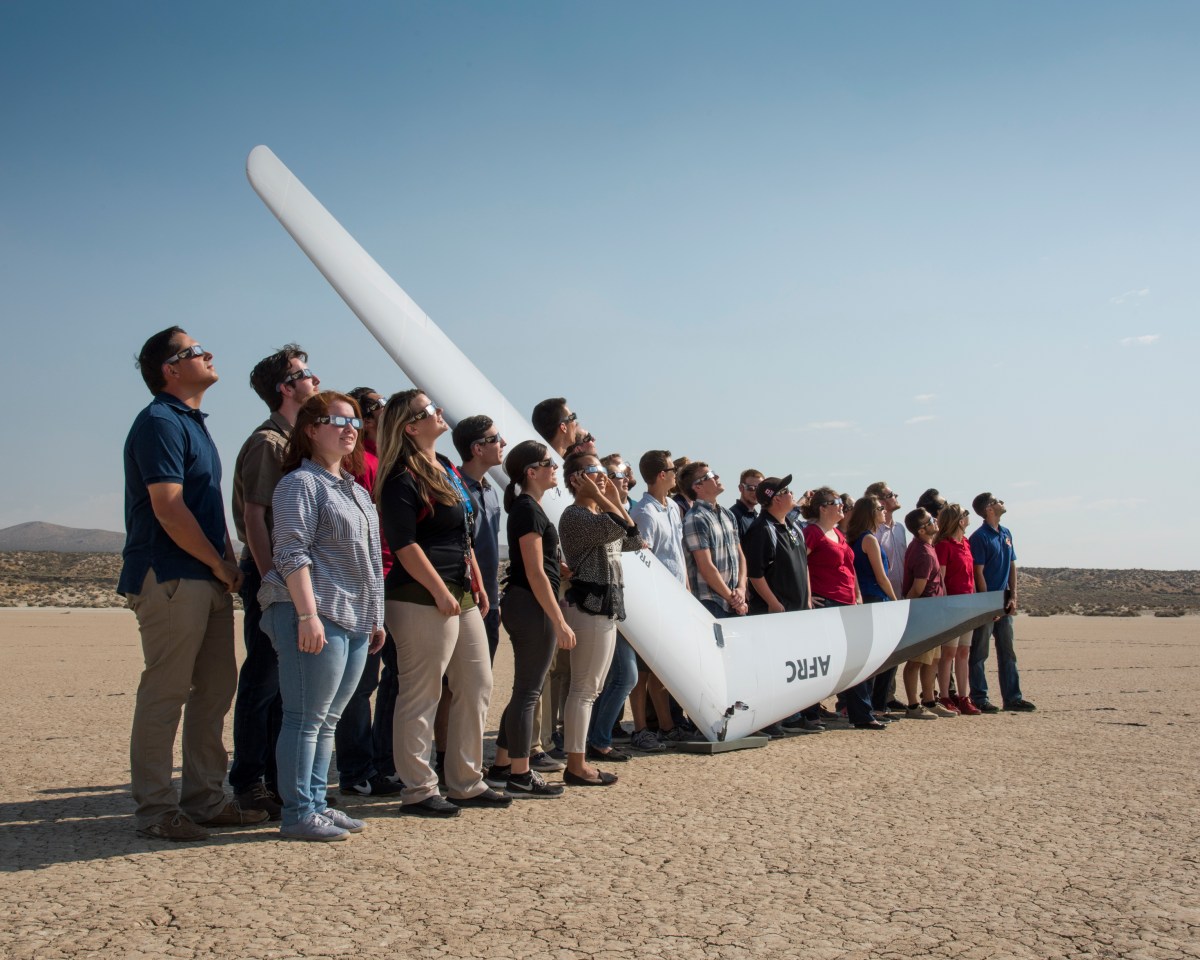My journey to Marshall Space Flight Center was a circuitous one. I like to think of myself as an atypical intern… in the best way possible. I graduated from the University of Southern California in 2011 with a Bachelor of Arts degree in English Literature, and two minors in French and Neuroscience. The look on people’s faces here when I tell them that is about what you’d expect. So how did I get here? It wasn’t luck, I’ll tell you that. I had to work really hard and, at 29-years old, have made some sacrifices that put me at a different ‘sign-post’ in life than most of my friends who maybe already own homes, finished medical school, or are thinking about having children. But that’s OK. My life has been a wonderful adventure. And now I’m here, working for NASA!
I have always been extremely fascinated by space exploration and astronomical science, but never really thought I could make it my career. After a string of jobs post-graduation that left me unfulfilled, I went to live in northern Thailand for a year to travel and volunteer at an elephant sanctuary. It was the definition of wanderlust and I loved every minute of it. When I came back to the United States, I began taking pre-requisite courses for veterinary school which included math and physics. After a couple of semesters of STEM classes I realized, hey, I’m pretty good at this, and I really enjoy it. My dream of working for NASA began to seem more like a feasible reality.
I was taking my engineering pre-requisites at Santa Monica College, a community college in Southern California a mere two miles from the beach. I joined the Physics Club and scoured the NASA website for internship and job opportunities. I found out about the National Community College Aerospace Scholars (NCAS) program, an educational outreach program geared specifically towards community college STEM students and quickly applied to the JPL branch. The NCAS program is really where everything started to fall into place for me. NCAS provides an authentic NASA experience to community college STEM students and encourages them to apply to graduate programs or transfer to 4-year universities. I’ve honestly never felt so inspired in my life than during my week at NCAS JPL. One of the biggest things I learned from NCAS was that anything is possible, and no dream is too big. NCAS is a very unique experience in that it allows students to get real hands on engineering experience much like a traditional internship program, but because it’s catered specifically for community college students who don’t have degrees yet, a large part of the program is focused on how to take those next steps to get into a full-time program. We were introduced to NCAS graduates who were now studying at top universities, attended inspiring talks from JPL employees, toured the campus (JPL has a Mars yard!), and were given resources that extended beyond the program’s end date. It is definitely because of NCAS that I am here today, interning at Marshall. Eddie Gonzalez and Roslyn Soto run NCAS JPL and are truly two of the most hardworking, passionate, and motivating people at NASA. I owe much of my success in getting here to them as they are constantly inspiring students and make themselves available for questions and assistance when applying to other NASA internships or schools. They made me realize that my dream of working for NASA was attainable and helped me do it.
A few more semesters of classes later, and after a stint as a full-time technical consultant, I went to see astronaut Jose Hernandez speak at Generation 1st Degree Pico Rivera, a community program with a mission to provide resources to minorities to get college degrees. Along with Jose’s inspiring and moving story, I was able to meet other NASA engineers who had varying backgrounds, overcame struggles, and ultimately made it to NASA. At 29, the thought of starting over in school, especially in something as rigorous as engineering, is often overwhelming. But every time I hear one of these NASA icons, like Jose, tell their story, a fire is ignited in me and I am reminded that it is possible and so worth it. I went home that day and applied for every NASA internship I qualified for. I didn’t hear back for months and just assumed it wasn’t going to happen this year. What now? Do I continue my coursework, apply for a second bachelor’s degree program or a master’s program? Do something else? And then the email came. On August 14, a cool two weeks before the fall internship session began, I received an email from Marshall Space Flight Center, inviting me to intern with NASA this semester. It was a cosmic sign.
So I packed my bags and traveled all the way from Los Angeles to Huntsville to start my journey. And that about brings us up to speed. I am currently interning with the Space Environments team within the Spacecraft and Vehicle Systems Department at Marshall Space Flight Center. I analyze the space environment (with a focus on plasma) and how it impacts space systems like the International Space Station and the astronauts on it! My team is absolutely amazing and I am learning new things every day. The internship program here really allows us to get the full Marshall experience with site tours so we can see all of the other cool things that go on at Marshall, weekly talks with engineers, and weekend barbecues! I can’t wait to see what the universe has in store for me next!


